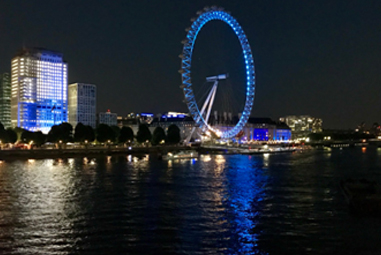July 09, 2018
Last week on July 5th, the nation’s ‘most loved institution’, the NHS turned 70, and because of this momentous occasion, authorities ensured that nothing was left amiss in celebrating the contributions of the largest healthcare system in the world.
The National Health Service was founded in 1948 by the Labour Government in the UK. The institute’s aim, since its inception, has been was to cater to the medical needs of the denizens of the country, by offering free services at the point of delivery. Since then, the institute has greatly improved the conditions of healthcare in the country and has been given the term ‘one of the greatest achievements of civilisation’.
Some of the accomplishments that this national level healthcare system is credited for includes increased overall life expectancy, a drastic reduction in the reported use of drugs, safer food and working environments, and fewer cases of infectious diseases.
To celebrate the seventieth anniversary of such an impactful institution, the nation has organised a number of important events including the ceremonies at York Minster and Westminster Abbey. A large nationwide tea party, named the ‘NHS Big 7Tea’ was organised to commemorate the roles of the NHS charities. Many other award events were organised to reward the national and local ‘health heroes’.
On July 4th, the parliamentary awards were distributed to the NHS porters, chief executives, local council health teams, and volunteers. The BBC has also contributed to the celebrations by putting together highlights and broadcasting a series of programmes from June 25th to July 6th.




Image Description: Many of the important buildings in the country were illuminated in blue light to celebrate the occasion

Image Description: Nurses posing in different uniforms from the last seven decades
How could Technology Alter the NHS services by its 100th Anniversary?
On the day of celebration, CBBS organised another event in NHS Wales, wherein primary school children were asked about the next thirty years of the NHS. The prize-winning prediction was that there will be more robots. Though the response was undoubtedly inspired by science fiction, this answer may be more possible than we once thought. In fact, according the report published by Sky News, the surgical robots and their precision and efficiency will actually be the foremost telling point of how technology is going to affect NHS services.
Another big potential of technology in healthcare comes from AI in the analysis of patients’ DNA and gene editing. AI is also showing great potential in reducing the medical practitioners’ efforts in solving time-consuming tasks, in image-guided radiotherapy and skin cancer diagnosis. Other promising technologies in the area are CRISPR, smart pills, transdermal biosensors, and artificial wombs.
Furthermore, it’s not just high-tech solutions that may revolutionise healthcare services. Something as simple as smartphone apps like GDPQ may also bring radical changes in the services of the NHS. Similar smartphone apps that are improving the qualities of healthcare services around the world include Chemgenie and MyHealthIndia.
Resource:
https://www.england.nhs.uk/nhs70/get-involved/celebrations/
https://www.nhs70.nhs.uk/bbc-to-mark-nhss-70th-birthday/
https://www.nhs70.nhs.uk/nhs-70-parliamentary-awards-shortlist-revealed/
https://www.bbc.com/news/uk-wales-44696284
https://news.sky.com/story/how-technology-will-transform-the-nhs-in-the-next-70-years-11426598
Image Sources: